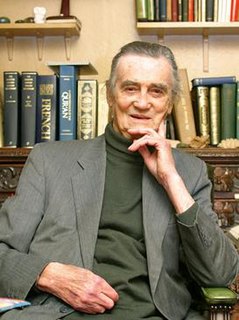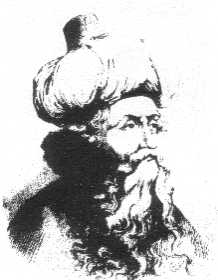A Quote by Gautama Buddha
In his ignorance of the whole truth, each person maintains his own arrogant point of view.
Related Quotes
From a human point of view, the difference between the mind of a human and that of a mountain goat is wonderful; from the point of view of the infinite ignorance that surrounds us, the difference is not impressive. Indeed, from that point of view, the goat may have the better mind, for he is more congenially adapted to his place, and he would not endanger his species or his planet for the sake of an idea.
The optimist is right. The pessimist is right. The one differs from the other as the light from the dark. Yet both are right. Each is right from his own particular point of view, and this point of view is the determining factor in the life of each. It determines as to whether it is a life of power or impotence, of peace or of pain, of success or of failure.
Certain mystical philosophers have personified Destiny, and from this point of view each man's personal destiny is his archetype or "other self"--his "angel"--with whom he must be reunited if he is to rise above his fragmentary identity as a worldling and become whole, as he is (and always has been) in the mind of God.
With only one life to live we can't afford to live it only for itself. Somehow we must each for himself, find the way in which we can make our individual lives fit into the pattern of all the lives which surround it. We must establish our own relationships to the whole. And each must do it in his own way, using his own talents, relying on his own integrity and strength, climbing his own road to his own summit.
Do not praise your own faith exclusively so that you disbelieve all the rest. If you do this you will miss much good. Nay, you will miss the whole truth of the matter. God, the Omniscient and the Omnipresent, cannot be confined to any one creed, for He says in the Quran, wheresoever ye turn, there is the face of Allah. Everybody praises what he knows. His God is his own creature, and in praising it, he praises himself. Which he would not do if he were just, for his dislike is based on ignorance.
One and all
We lend an ear-nay, Science takes thereto-
Encourages the meanest who has racked
Nature until he gains from her some fact,
To state what truth is from his point of view,
Mere pin-point though it be: since many such
Conduce to make a whole, she bids our friend
Come forward unabashed and haply lend
His little life-experience to our much
Of modern knowledge.































